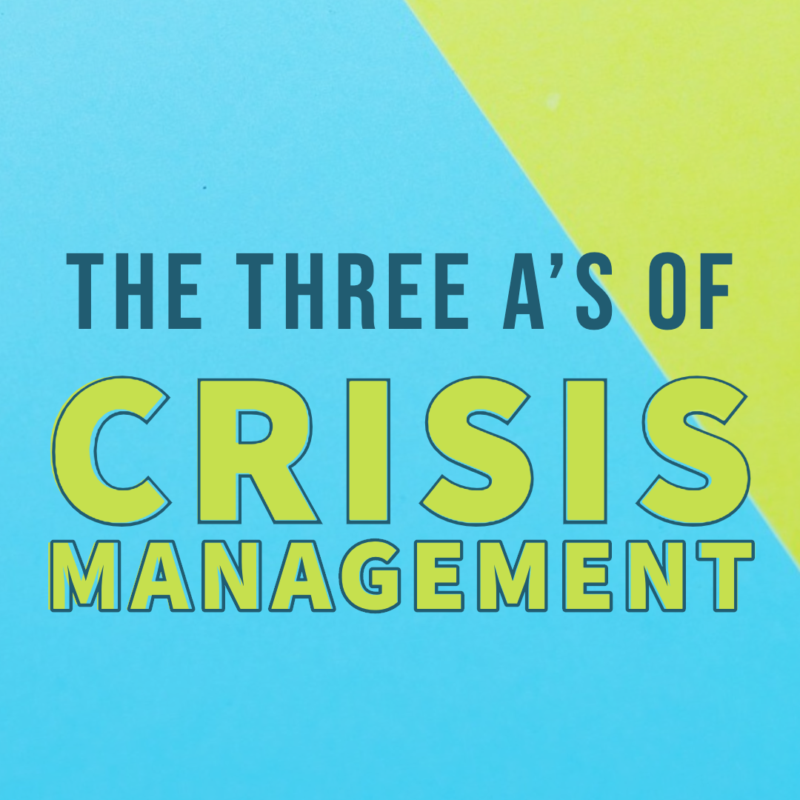Brands doing it right in times of crisis
I’m 33 years old. I guess you’d call me an “old millennial.” And as we deal with the COVID-19 pandemic, it makes me realize I’ve already seen quite a few large-scale crises by now. I was a freshman in high school on Sept. 11, 2001. I was a freshman in college when hurricanes Katrina and Rita ravaged my home state of Louisiana (and when the latter destroyed my actual home). I was a senior in college when the Great Recession hit.
In that sense, I’ve spent a lot of time learning from the communications surrounding crises. And there’s definitely a right way to do it. Amid all the bad news, scary news and sad news, I want to focus on the brands that have done a really good job communicating lately.
The ones who recognized their fortune and did something nice with it
You may have noticed by now that there’s one industry that stands to have quite a pandemic windfall ‒auto insurance. You’ve probably seen the memes saying “I’m getting about three weeks to the gallon!” People are driving less often, and when they do go somewhere, it’s probably closer to home. That means fewer accidents and – you got it – fewer claims to pay out.
Two insurers – Allstate and American Family – proactively announced premium rebates to their customers as a result. Another, Geico, followed suit the next day.
At this point, even if every other insurer in the United States issues a rebate or credit of some sort, Allstate and American Family are the true winners here. They did something that impacts millions of people in a positive way, and they did it before they were asked to.
The ones who planned ahead
The organizations who communicate best in a crisis are the ones who planned for it. Let’s be clear – no one could have seen a global pandemic and subsequent economic shutdown coming. But the old adage rings true. If you fail to plan, you plan to fail.
Obsidian works with St. George’s Independent School, which took note of the quarantines in other countries before COVID-19 significantly impacted the United States. They had plans for weather-related or other short-term closures, but the prospect of an extended closure was new. So their task force developed a plan, including remote learning, in February – a month before Memphis even had a confirmed case of the virus. As a result, their students experienced minimal interruption.
The ones who made a sacrifice to benefit others
Recognizing the hit his company would take as a result of the pandemic, FedEx CEO Fred Smith is voluntarily taking a 91% cut in his base salary. At a time when millions of people are out of work, Smith is putting his company’s future and his employees’ livelihoods ahead of his own.
One of the biggest concerns of this pandemic is a shortage of necessary personal protective equipment – like masks, face shields, gowns and gloves – to protect health care workers caring for sick patients. But health care workers aren’t the only ones who use these materials. Construction companies, tattoo parlors and other businesses now closed have long stocked some of these items to protect their employees during customer contact or from exposure to dangerous chemicals. Countless organizations have stepped up to donate some or all of their own supplies, despite uncertainty around when they may be able to replenish. Here are a few:
- Memphis-based Tioga Environmental Consultants, which donated a significant number of its own masks to Memphis hospitals
- United Steelworkers, whose partners stepped in and rerouted essential supplies to frontline workers.
- 7-Eleven, which donated 1 million masks to FEMA to distribute to health care workers
- Apple, which donated 10 million masks to health care workers in the United States and Europe
- Home Depot, which halted sales of N95 masks at its stores in order to donate them to health care workers
The ones who pivoted ASAP
In times like these, it’s heartening to see companies that pivoted their own operations to meet critical needs. Consider:
- Giorgio Armani, which halted its typical production to manufacture single-use overalls for health care workers
- Colgate-Palmolive, which is utilizing its existing manufacturing facilities to produce 25 million bars of soap
- Eddie Bauer, which shifted some of its production to make gowns and N95 masks for health care workers
- Memphis-based Old Dominick Distillery, which shifted its typical production of whiskey and vodka to make 10,000 bottles of hand sanitizer, which will be donated to the Shelby County Commission and distributed free of charge
- Ford, 3M, GE and UAW, who joined forces to put automobile manufacturing facilities to work producing much-needed ventilators
I could never name them all in this post, but if you know of a great company that has altered its traditional business to meet current needs, share it in the comments!
The ones who kept it simple
OK, I’m eight months pregnant, but this Walmart commercial probably made you tear up too. I’ve seen other essential stores fall flat with messaging, but Walmart kept it simple. They used real videos of real employees singing “Lean on Me” and promised customers they’ll be there at a time when people need them most.
And, of course, consider your email inbox. I’ve received countless messages from companies that were not useful. Like the one from an unnamed chain saying “some of our stores are closing.” I had to visit the website, type in my ZIPcode and search to see if mine was closing or not. If you’ve got multiple locations, send two emails – your store is closing or your store isn’t closing. On the other hand, Whole Foods did keep it simple when they sent emails outlining what’s changing. No one needs to know what’s the same, but they do need to know about shorter hours, accommodations for elderly shoppers and changes to certain departments.
Got any great examples I missed? Share them in the comments!


